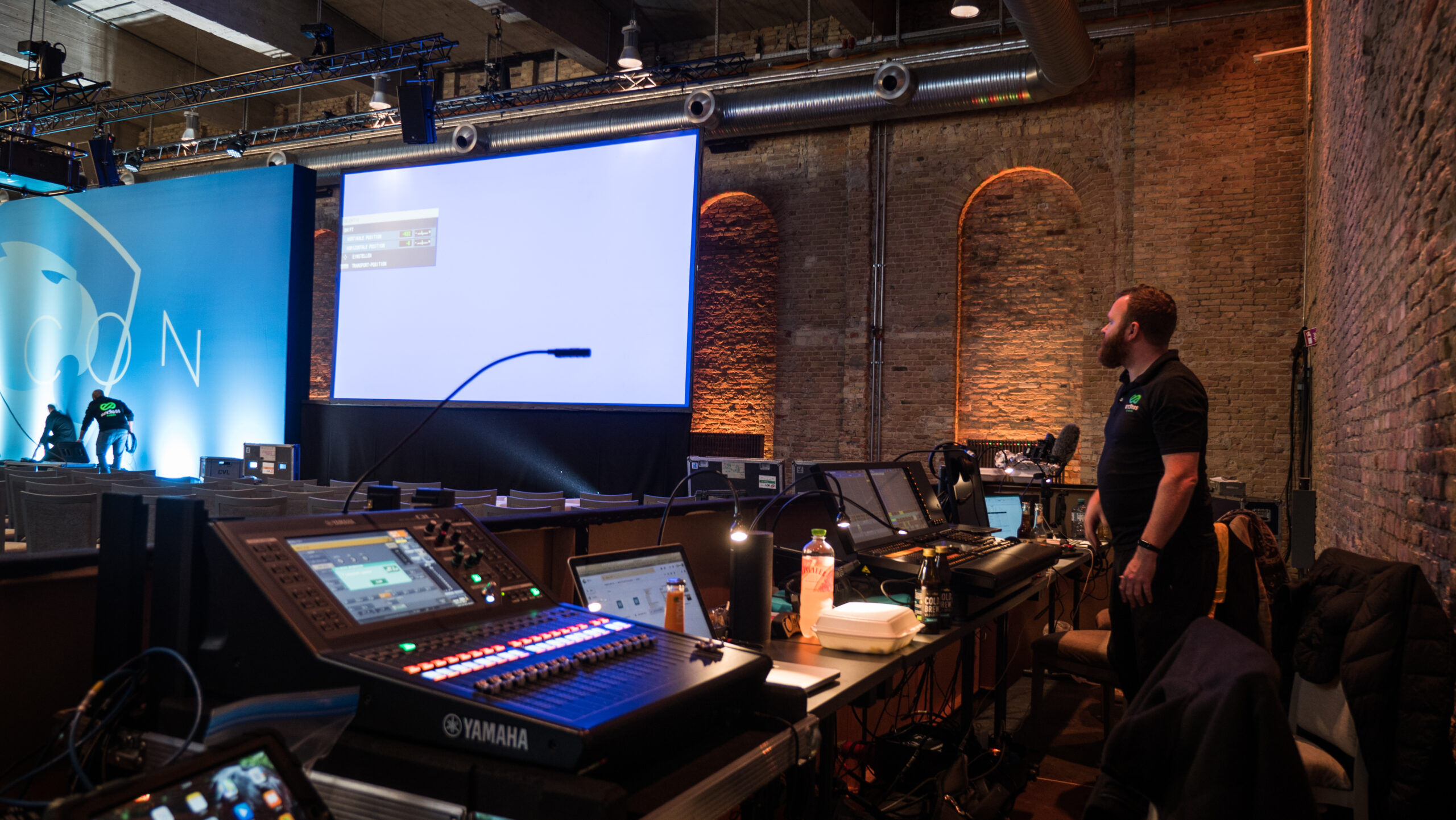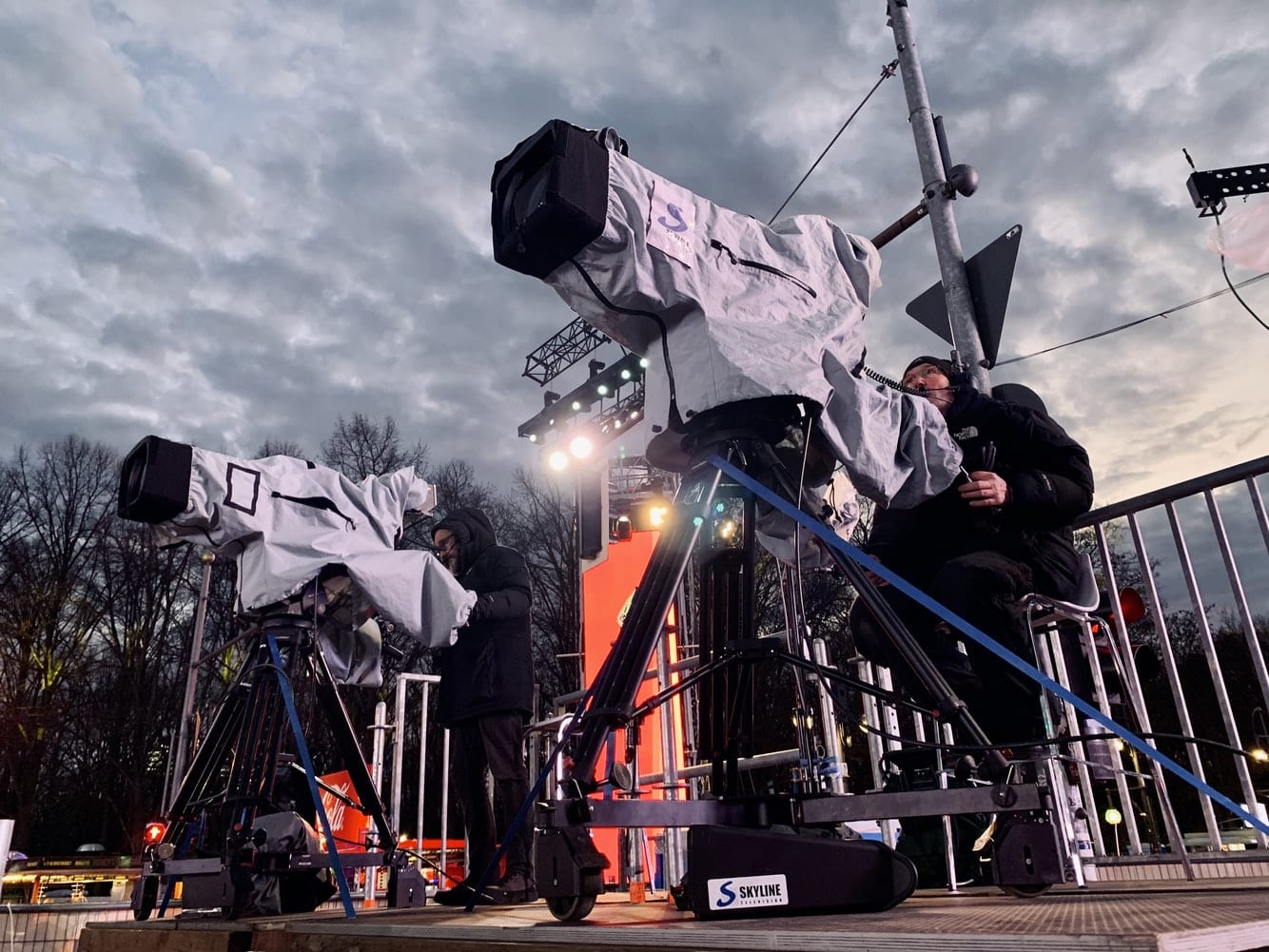How Event Production Functions: A Comprehensive Check Out the Refine
Event production is a complex and organized procedure that calls for mindful planning and implementation. It starts with developing clear goals and recognizing the target market. Each action, from budgeting to location selection, plays a vital role in ensuring success. As the process unfolds, various aspects have to straighten effortlessly. The nuances of this detailed operation commonly go undetected. What are the key stages that add to a remarkable event?

The Preliminary Drawing Board
When beginning on event production, mindful planning is vital to ensure a successful end result. The preliminary preparation phase functions as the foundation for all subsequent efforts. During this stage, event producers should specify the event's purpose and purposes plainly. Recognizing the target market aids customize the experience and messaging, ensuring significance and engagement.Producers should also consider the event format, whether it be in-person, virtual, or hybrid, as this will affect numerous logistical components. Picking an ideal day and location is crucial, as it affects accessibility and availability.Furthermore, putting together a trustworthy team is fundamental for separating duties and enhancing interaction. Developing a timeline with turning points assurances all tasks are finished on timetable. This stage entails extensive research, consisting of recognizing possible difficulties and developing strategies to reduce risks. Inevitably, a well-structured preliminary preparation phase sets the tone for an effective event production journey.

Budgeting and Source Allowance
In event production, reliable budgeting and resource allotment are important for success - event production charlotte. Developing financial criteria sets the structure for all subsequent decisions, while resource circulation approaches ensure that every part of the event is effectively sustained. Together, these elements aid preserve control over expenditures and enhance making use of available resources
Developing Financial Parameters
Establishing economic parameters is essential to the success of any event production, as it establishes the foundation for reliable budgeting and resource appropriation. This process starts with specifying the overall spending plan, which encompasses all elements of the event, consisting of venue expenses, event catering, and advertising and marketing. By identifying readily available funds, event organizers can prioritize expenses and allot sources appropriately. On top of that, it is important to carry out thorough market research study to prepare for potential prices and identify funding sources, such as sponsorships or ticket sales. Developing clear economic specifications also aids in threat administration, allowing organizers to reserve backup funds for unanticipated expenditures. Inevitably, a distinct budget serves as a roadmap, directing the event production team towards attaining their goals while preserving monetary control.
Resource Circulation Approaches
Efficient resource distribution strategies are crucial for optimizing the influence of an occasion while adhering to budget restraints. Effective event production calls for a thorough strategy to budgeting and resource allocation. Organizers have to focus on essential components such as location, wedding catering, and modern technology, making sure that funds are designated to areas that boost guest experience. A thorough spending plan needs to lay out anticipated costs and recognize locations for prospective expense savings, such as negotiating with vendors or exploring sponsorship chances. Additionally, tracking expenses throughout the preparation process helps protect against overspending. By using strategic resource distribution, event manufacturers can provide a memorable experience while keeping financial responsibility, inevitably adding to the overall success of the event.
Location Choice and Logistics
Picking the ideal venue is vital to the success of any event, as it sets the stage for the general experience. Venue choice entails examining various aspects, consisting of capacity, access, and location. Organizers need to consider the target market and the nature of the event, making sure the place aligns with the event's goals.Logistics play a significant duty in this procedure, involving plans for seats, audiovisual equipment, and catering services. A well-chosen place should help with smooth circulation for participants and team, improving engagement.Additionally, evaluating potential locations for features like vehicle parking, toilets, and emergency leaves is vital for safety and comfort. The timeline for securing the place is also critical, as preferred places may schedule rapidly - event production charlotte. Subsequently, extensive preparation and prompt execution can ultimately add to a seamless event experience, making venue choice and logistics essential parts of effective event production
Imaginative Concept Growth
While the place establishes the physical stage, creative concept development forms the event's identification and narrative. This process starts with determining the event's function and target audience, permitting event manufacturers to develop a compelling theme that reverberates with guests. Brainstorming sessions often consist of varied perspectives, cultivating cutting-edge ideas that straighten with the event's goals.Once a style is established, aesthetic aspects such as shade schemes, signage, and style are made to improve the general environment. Storytelling strategies may also be incorporated to produce an engaging trip for participants, guaranteeing a memorable experience. In addition, factors to consider concerning entertainment, tasks, and interactive components are lined up with the chosen principle, reinforcing the theme throughout the event.Ultimately, reliable innovative concept advancement guarantees that every element of the event works cohesively, leaving a long lasting impact on attendees and satisfying the event's purposes. This foundational job lays the groundwork for succeeding planning and implementation phases.
Working together With Suppliers and Providers
Effective event production rests on efficient collaboration with vendors and distributors. Choosing trustworthy partners, discussing agreements successfully, and ensuring timely distributions are crucial actions in this procedure. Each of these elements contributes considerably to the total success and smooth execution of an event.
Choosing Reliable Allies
How can event coordinators ensure a smooth production experience? Selecting reputable companions is crucial in achieving this goal. Event planners should carry out complete study to recognize vendors and suppliers with a proven track record of excellence. This includes inspecting recommendations, examining profiles, and examining client responses. Organizers must focus on companions that show professionalism, timely communication, and a willingness to work together. Building strong partnerships cultivates trust fund and makes it possible for fast analytical during the event. Additionally, it is beneficial to choose neighborhood vendors that understand the venue and regional logistics. Inevitably, an effective event rests on the synergy in between organizers and their partners, guaranteeing that every aspect of production runs efficiently and effectively.
Negotiating Agreements Successfully
Reliable arrangement of agreements is an essential action in the cooperation in between event coordinators and their vendors and vendors. This process involves clear interaction of assumptions, deliverables, and timelines. Organizers must carry out comprehensive study on market prices and market standards to develop a standard for negotiations. It is essential to produce a collaborative atmosphere, urging open dialogue concerning terms, prices, and prospective backups. Coordinators should additionally prioritize recognizing the vendor's capabilities and restrictions to straighten their requirements properly. Flexibility can bring about mutually beneficial contracts, cultivating long-lasting partnerships. Crafting distinct contracts that include particular performance metrics can assist ensure accountability, ultimately bring about successful event execution and fulfillment for all parties involved.
Guaranteeing Prompt Deliveries
Timely shipments are crucial for the smooth execution of any event, needing diligent partnership in between planners and their vendors and providers. Reliable communication is important, as it assists establish clear assumptions pertaining to delivery timetables, quantities, and certain requirements. Coordinators frequently produce thorough timelines to outline vital turning points, making sure all celebrations continue to be aligned throughout the process. Regular check-ins with vendors can assist determine prospective delays early, permitting proactive solutions. Additionally, building strong relationships with dependable providers promotes count on and liability, which can result in better service and prioritization. By prioritizing these joint efforts, coordinators can reduce interruptions, thereby improving the total efficiency of event production and guaranteeing that all required materials and services get here as intended.
Advertising and Promo Techniques
While organizing an event, the success of marketing and promo methods can considerably influence presence and involvement. Efficient techniques commonly include a mix of electronic advertising, traditional marketing, and grassroots outreach. Utilizing social networks platforms enables for real-time interaction and targeted advertising and marketing, reaching details demographics efficiently. Email advertising and marketing campaigns can even more involve potential guests with tailored web content and reminders.Collaborations with influencers or industry leaders can likewise boost reliability and broaden reach. Resources Developing engaging material, such as video clips or blog sites, helps to produce buzz and receive interest leading up to the event. Furthermore, leveraging early-bird price cuts and unique rewards can incentivize ticket purchases.Promoting through standard networks, such as posters or local media, continues to be relevant, particularly in community-focused events. A thorough technique that incorporates several techniques warranties maximum presence and engagement, ultimately adding to the event's success and the creation of a remarkable experience for participants.
On-Site Implementation and Monitoring
On-site implementation and management are crucial components that establish the general success of an event. Efficient control throughout the event assures that all components align with the planned program. Event managers manage logistics, including vendor coordination, devices configuration, and visitor solutions. Keeping track of timelines and Look At This dealing with any type of unforeseen problems are essential for keeping a smooth experience.The staff plays a substantial duty, as skilled workers are in charge of numerous jobs such as registration, details dissemination, and technical support. Communication amongst staff member is important; it fosters a collaborative environment and allows quick resolution of challenges.Additionally, security methods have to be abided by, protecting the health of all participants. Post-event evaluations are also part of on-site management, providing understandings for future improvements. By concentrating on these aspects, event manufacturers can develop memorable experiences that meet or exceed attendee assumptions while achieving the event's purposes.
Frequently Asked Questions
Just how Do I Select the Right Event Theme?
Picking the right event theme entails taking into consideration the target market, event purpose, and venue. Looking into existing patterns and gathering input from stakeholders can additionally motivate imaginative concepts that resonate and create a memorable experience.

What Are Usual Mistakes in Event Production?
Typical mistakes in event production often include poor planning, bad interaction among group participants, spending plan mismanagement, ignoring to think about the audience's needs, and stopping working Full Article to perform a complete post-event analysis for future renovations.
How Can I Determine Event Success?
To determine event success, one can evaluate attendee satisfaction, engagement levels, budget adherence, and post-event comments. Key efficiency signs, such as ticket sales and social media communications, likewise provide valuable understandings right into general efficiency.
What Should I Do if It Moistens the Event Day?
In case of rainfall on the day, the coordinator needs to apply backup plans, such as securing outdoors tents or moving tasks inside. Communication with attendees concerning modifications is important to assure a smooth experience regardless of climate difficulties.
How Can I Ensure Participant Interaction During the Event?
